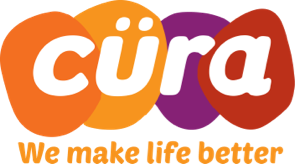Bridging Cultures: Why Multilingual Aged Care Matters in Australia
For many older Australians from non-English speaking homes, navigating aged care can feel like a journey through unfamiliar territory, impacting their comfort and sense of belonging. Multilingual aged care services are the vital bridges that connect these individuals with the support they need, offering language assistance, care plans that truly understand cultural nuances, and communication that builds genuine trust. This guide will explore how Culturally and Linguistically Diverse (CALD) aged care works, the language support available, how care plans embrace dietary and spiritual needs, pathways through My Aged Care and the NDIS, specialised support for mental health, dementia, and end-of-life care, and how Cura Aged Care champions this inclusive approach through dedicated staff and training.
What Does Culturally and Linguistically Diverse (CALD) Aged Care Mean?
Culturally and Linguistically Diverse aged care is all about providing home and community support that truly sees and respects a person’s heritage, their preferred language, and their unique cultural practices. It’s a way of ensuring that everyone feels valued and confident as they receive care, by making sure the way we communicate and the care routines we follow are in tune with their cultural identity and language support. Imagine the comfort and connection a senior feels when chatting with a carer in their mother tongue – it makes understanding medical advice so much easier and reduces any worries.
What Is CALD and Why Is It Important in Aged Care?
CALD stands for Culturally and Linguistically Diverse. It refers to older Australians and people with disabilities who come from a wide array of ethnic backgrounds and speak languages other than English. Understanding and acknowledging CALD status is absolutely crucial because providing excellent aged care hinges on clear communication, deep cultural respect, and personalised routines that honour traditions and customs. For example, a Greek-Australian elder might find immense comfort and clarity during a visit from a companion who speaks Greek, while an Italian-Australian family can actively participate in care planning when all the terms are explained in their language.
How Do Demographic Trends Affect CALD Seniors in Australia?
Australia’s population is ageing, and it’s becoming more vibrant and multicultural. In 2016, a significant 37 percent of older Australians were born overseas, and 18 percent spoke a language other than English at home. As this diversity grows, it’s essential for service providers to adapt their approach to meet varied communication needs and social norms, ensuring high-quality care for everyone. Being aware of these demographic shifts helps organisations strategically allocate resources, like hiring bilingual staff and creating translated materials.
Demographic Trends of Older Culturally and Linguistically Diverse Australians
In 2016, over one-third (37%) of Australians aged 65 and over were born overseas, and 18% spoke a language other than English at home. These statistics highlight the increasing cultural and linguistic diversity within Australia’s older population, underscoring the need for aged care services to adapt to varied communication needs and cultural practices.
This research directly supports the article’s demographic statistics regarding older Australians from culturally and linguistically diverse backgrounds, emphasizing the importance of adapting aged care services.
| Demographic Trend | Statistic | Implication |
|---|---|---|
| Older Australians born overseas | 37% (2016) | Increased demand for language-specific support |
| Speak a non-English language at home | 18% (2016) | Need for translated resources and interpreter access |
| Projected CALD seniors by 2050 | Over 40% | Scaling multicultural workforce and training |
The rich tapestry of our ageing population highlights the pressing need to expand multilingual aged care services, prompting us to explore the communication solutions that can bridge these gaps.
What Challenges Do CALD Individuals Face in Accessing Aged Care?
CALD seniors often encounter hurdles such as:
- Difficulties with language when trying to understand service applications and assessments.
- A lack of culturally appropriate meal options or ways to observe religious practices.
- Misunderstandings about care routines because the language used is unfamiliar.
- Feeling isolated due to a lack of community activities that cater to their first language.
By recognising these challenges, aged care services providers can prioritise interpreter services, bilingual staff, and cultural awareness training to ensure everyone has fair access and a positive aged care experience.
How Do Multilingual Services Improve Communication in Aged Care?
Multilingual services bring greater clarity, ease anxiety, and empower clients to make well-informed choices by connecting them with staff who speak their language or by providing professional interpreting support. This approach enhances safety, boosts satisfaction, and ensures care plans are followed effectively because instructions are clearly understood and personal preferences are respected.
What Language Assistance Options Are Available in Aged Care?
Aged care providers typically offer a range of language assistance methods to meet diverse needs:
- Bilingual care workers who can conduct visits, provide personal care, and join in social activities in the client’s preferred language.
- Professional interpreters, accessed through national phone services or booked for in-person appointments, especially for complex discussions.
- Printed materials, such as care guides, consent forms, and activity schedules, translated into common community languages.
These options ensure seniors and their families have clear information, enabling them to actively participate in care decisions and daily life without confusion.
How Does TIS National Support Multilingual Aged Care?
TIS National is Australia’s dedicated Translating and Interpreting Service, offering aged care providers easy access to qualified interpreters over the phone, whenever needed. Key benefits include:
- Access to accredited interpreters for over 160 languages.
- Support available 24/7 for urgent medical or care-related conversations.
- Affordable rates, thanks to government agreements.
By working with TIS National, providers can ensure accurate communication during assessments, care reviews, and emergencies, building stronger trust and safety.
Translating and Interpreting Services (TIS National) in Australian Aged Care
TIS National, Australia’s Translating and Interpreting Service, provides essential language assistance for aged care providers, offering access to accredited interpreters in over 150 languages and dialects. These services are available 24 hours a day, 7 days a week, and are funded by the Australian Government for approved aged care providers, facilitating clear communication and strengthening trust with culturally and linguistically diverse clients.
This citation confirms the details about TIS National’s services, including its availability, language coverage, and government funding, as described in the article.
What Are Effective Strategies to Overcome Communication Barriers?
- Workshops on cultural awareness for all staff, helping them understand different customs and communication styles.
- Using visual aids and simple pictures for daily routines and medication reminders.
- Holding regular meetings with families, with interpreter support, to align expectations and clarify care instructions.
Putting these strategies into practice not only reduces misunderstandings but also cultivates a respectful environment where clients and their families feel truly heard and supported.
How Are Culturally Appropriate Care Plans Developed for CALD Seniors?
Creating care plans that are truly culturally appropriate starts with a thorough understanding of each senior’s language preferences, dietary needs, and social customs. Care coordinators then thoughtfully weave these insights into daily routines and activities, ensuring personal identity is honoured and overall well-being is enhanced.
What Is Person-Centred Care for Diverse Cultural Backgrounds?
For CALD seniors, person-centred care means tailoring services to their unique life stories, traditions, and ways of communicating. It involves actively listening to their cultural values and adapting routines—perhaps by including traditional music, sharing stories from their homeland, or respecting faith-based observances—to make them feel more engaged and comfortable.
How Are Dietary and Religious Needs Addressed in Aged Care?
Respecting and understanding dietary and religious practices is a cornerstone of culturally safe care. Facilities and home care services work closely with families and cultural advisors to create meal plans and accommodate observances that align with seniors’ beliefs.
| Culture | Dietary Requirement | Implementation |
|---|---|---|
| Indian | Vegetarian and Halal options | Weekly menu featuring diverse vegetarian curries |
| Greek | Olive oil-based meals | Incorporating traditional Greek salads and dips |
| Vietnamese | Low-salt fish sauces | Using custom spice blends and rice-based dishes |
What Role Does Family Involvement Play in CALD Aged Care Decisions?
Family members are often the most important advocates, helping to clarify preferences, support cultural rituals, and build trust between seniors and their care teams. Including relatives in care reviews and planning sessions ensures that subtle language nuances are captured accurately and that cultural celebrations are thoughtfully integrated into the care schedule.
How Can CALD Seniors Navigate Funding Through My Aged Care and NDIS?
Understanding how to access support requires clear guidance that is sensitive to CALD communities. With language assistance and culturally informed advice, seniors and their families can confidently make choices about government funding and service arrangements.
How Does My Aged Care Support Culturally Diverse Individuals?
My Aged Care offers access to interpreters through TIS National and provides information in multiple languages about eligibility, assessment processes, and available services. Dedicated CALD liaison officers can explain program details in various languages, ensuring clients fully grasp assessment outcomes and package options.
What NDIS Services Are Tailored for CALD Participants?
The NDIS provides support coordination and community participation funding that can be used for interpreter services and culturally relevant activities. Participants from CALD backgrounds can request support coordinators who speak their language, helping them navigate plan reviews and connect with community groups that understand their cultural background.
How Do Home Care Packages Cater to Multicultural Home Care Needs?
Home Care Packages give clients the flexibility to choose providers who offer bilingual staff, activities that resonate with their culture, and meal options that reflect their heritage. Funds can be allocated for interpreter bookings and lifestyle supports that help seniors stay connected to their cultural identity.
What Government Diversity Frameworks Ensure Equitable Access?
Australia’s Aged Care Quality Standards require providers to offer culturally safe care. Additionally, the Aged Care Diversity Framework and the National Ageing and Aged Care Strategy for CALD Backgrounds provide guidelines for monitoring fair access, ensuring cultural competence training, and reporting on outcomes for CALD individuals. These policies uphold the right of every senior to receive care that is respectful and appropriate to their language and culture.
Government Frameworks for Culturally Diverse Aged Care in Australia
The Australian Government has implemented key frameworks, including the Aged Care Diversity Framework (launched in December 2017) and the National Ageing and Aged Care Strategy for People from Culturally and Linguistically Diverse (CALD) Backgrounds (launched in December 2012). These initiatives aim to embed diversity in aged care service design and delivery, ensuring equitable access and culturally appropriate support for older Australians from diverse backgrounds.
This citation verifies the existence and purpose of the government frameworks mentioned in the article, which are crucial for ensuring culturally appropriate care.
What Specialised Multilingual Support Services Are Available for CALD Seniors?
Beyond everyday care, specialised services require an even deeper level of cultural sensitivity to address complex medical and emotional needs.
How Is Mental Health Support Adapted for CALD Older Adults?
Mental health services for CALD seniors often include bilingual counsellors, translated resources for self-help, and group therapies that acknowledge culturally specific approaches to healing. Care plans might also involve community elders or faith leaders to bolster emotional resilience.
What Is Culturally Sensitive Palliative Care?
Palliative care teams collaborate with families to honour end-of-life rituals, provide bereavement support in the client’s language support, and respect dietary customs during their final days. This approach ensures dignity by aligning symptom management and emotional support with cultural beliefs surrounding death and mourning.
How Is Dementia Care Tailored for Multicultural Backgrounds?
Dementia care for CALD clients focuses on using familiar language cues, playing heritage music, and engaging in memory-based activities linked to cultural traditions. Simple environmental adjustments, like labelling personal items in the client’s first language, can significantly improve orientation and emotional security.
How Does Community Engagement Enhance CALD Elders’ Wellbeing?
Involving CALD seniors in community events, language-specific clubs, and cultural festivals helps combat isolation and strengthens their sense of identity. Organised transport, workshops facilitated by interpreters, and bilingual volunteers ensure seniors remain connected to their cultural networks and maintain a fulfilling life. multicultural support is essential in this context.
How Does Cura Aged Care Demonstrate Commitment to Multilingual and CALD Services?
At Cura Aged Care, we weave cultural inclusivity into every aspect of our training, staffing, and daily operations, ensuring that every client feels genuinely respected and understood.
What Cultural Competence Training Does Cura Provide to Staff?
Cura’s thorough training program covers cultural awareness, effective communication techniques, and basic language skills for commonly spoken community languages. Our workshops include practical role-plays, real-life case studies, and ongoing mentorship to reinforce best practices.
Who Are Cura’s Bilingual Care Workers Supporting CALD Clients?
Cura is proud to have care workers fluent in Italian, Greek, Mandarin, Vietnamese, Cantonese, and Arabic. These dedicated team members provide personal care, manage medication, and accompany clients on social outings, all in the client’s preferred language, fostering stronger relationships and minimising miscommunication.
What Testimonials Showcase Cura’s Culturally Safe Care?
One cherished client from Lebanon shared how our Arabic-speaking carer beautifully incorporated traditional meals and prayer times into her weekly visits. Another family from Macedonia expressed immense relief when our bilingual coordinator explained their NDIS plan details in Macedonian, ensuring they accessed the right therapies without any confusion.
Why Is Cultural Competence Essential for Quality Multilingual Aged Care?
Cultural competence is the ability to recognise, respect, and respond effectively to each person’s unique cultural identity, ensuring that care is safe, respectful, and truly beneficial for all clients.
What Is Cultural Competence in Aged Care?
In aged care, cultural competence means understanding a client’s beliefs, values, and communication styles, and then adapting policies, environments, and interactions to align with their cultural framework. It’s about transforming standard care routines into experiences that are deeply meaningful and respectful of their heritage.
How Do Aged Care Quality Standards Mandate Cultural Competence?
The Aged Care Quality Standards require providers to deliver care that honours each person’s identity, values, and preferences. Standard 1 specifically focuses on dignity and choice, while Standard 7 addresses the governance needed for continuous cultural safety.
How Does Cultural Competence Improve Client Outcomes?
- Building greater trust and encouraging active participation in services.
- Significantly reducing misunderstandings that could impact medication and therapy.
- Leading to higher satisfaction rates and improved indicators of overall well-being.
These results clearly show that cultural competence is far more than just a policy; it leads to tangible improvements in both health and happiness.
How Can Families Benefit from Multilingual and Culturally Diverse Aged Care Services?
When families see their loved ones being understood and treated with respect, it brings immense relief and confidence, fostering a strong partnership between care teams and households which is why multicultural support is a much needed service in aged care.
What Are the Advantages of Multicultural Home Care for Families?
Families gain invaluable peace of mind, knowing that:
- Communication is always clear and culturally sensitive.
- Care routines honour cherished traditions, easing emotional burdens.
- Coordination with family events, social outings and cultural festivals is handled smoothly.
These benefits allow families to focus on spending quality time together, rather than getting bogged down in administrative details.
How Does Language Assistance Build Trust Between Families and Care Providers?
When a family member can discuss their concerns in their own language, they feel genuinely heard and understood. Language assistance minimises the risk of misinterpretation and cultivates a collaborative atmosphere where care plans truly reflect the family’s values.
How Can Families Access Support for CALD Aged Care Needs?
- Reach out to a provider that specialises in multilingual aged care services.
- Request an assessment conducted in your preferred language to ensure all needs and preferences are captured.
- Involve bilingual coordinators in all plan reviews and discussions about funding.
By taking these proactive steps, families can ensure their seniors receive personalised support within a culturally safe and understanding environment.
What Are Common Questions About Multilingual Aged Care Services in Australia?
In Australia’s wonderfully diverse society, many families and seniors are looking for clear answers about language support, cultural understanding, and available service options.
What Is CALD in Aged Care?
CALD refers to individuals from Culturally and Linguistically Diverse backgrounds – those whose first language or cultural practices differ from the mainstream English-speaking population. Recognising CALD status ensures that care is tailored to reflect each person’s unique identity.
How Can I Access Language Support for My Aged Care?
Language support is readily available. You can request interpreters through national services, arrange sessions with bilingual staff, or obtain translated documents before assessments and care reviews.
Why Is Cultural Competence Important for Aged Care Staff?
Cultural competence empowers care workers to provide respectful, safe, and personalised support by understanding each client’s beliefs, values, and communication styles, which in turn builds trust and enhances well-being.
What Are the Challenges for CALD People in Aged Care?
Common barriers include language misunderstandings, a lack of culturally familiar activities, limited access to interpreters, and insufficient staff training in diverse cultural customs.
How Does Cura Support Multilingual Aged Care Clients?
Cura employs bilingual care workers, partners with professional interpreters, and invests in ongoing cultural competence training. Our personalised care plans honour dietary, religious, and social preferences, creating a holistic environment where every client feels truly valued.
Providing support in multiple languages isn’t just a nice-to-have; it’s fundamental to delivering quality aged care. By integrating multilingual staff, professional interpreting, culturally sensitive routines, and expert guidance through My Aged Care and the NDIS, we ensure every senior maintains their dignity and sense of connection. Cura’s specialised teams and comprehensive training programs are setting a new benchmark for inclusive care, empowering CALD seniors and their families with clarity, trust, and personalised well-being.





